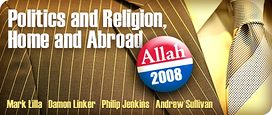I’m reluctant to say much in response to Mark’s reply. With courtesy and patience, he spells out the areas in which we disagree, and where, I suspect, we will continue to differ.
Let me confine myself to one specific point. Mark comments how prohibitionists, anti-evolutionists, etc. lost on specific issues, and thereafter “they think of themselves as beleaguered, outnumbered, and swamped by the anonymous forces of secular modernity.” That is a precisely correct description of their self-perception. But I wonder how badly they really had lost? It is a myth that the Scopes trial dealt a massive blow to anti-evolutionism: as Stephen Jay Gould and others have shown, threats of legal challenge basically kept evolution out of most high school textbooks for forty years. As Joel Carpenter argues, the Scopes defeat led to a major reorganization of evangelical political life, but was nothing like a disastrous defeat. Inherit the Wind has left a powerful, but misleading, historical legacy.
Meanwhile, prohibition and temperance come and go in American life. The prohibitionists lost in 1933, largely through their over-reach, but temperance ideas came back wholesale in the late 1970s, via the DUI movement among other things. Prohibionist zeal certainly motivates our social crusades against other pleasurable substances.
Mark is so right to say that the political Islam issue would get us into whole different territory. Are we ready for a second debate in Cato Unbound II: Political Theology Strikes Back?

